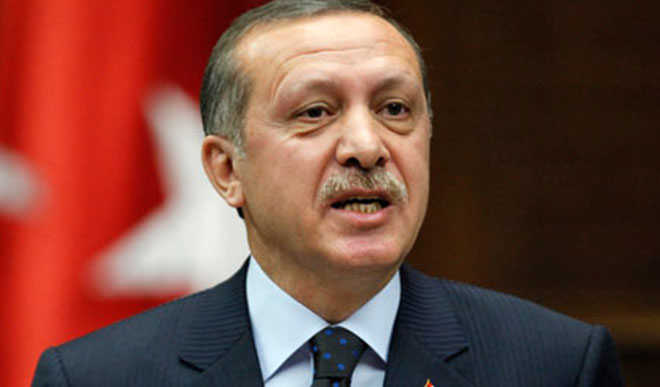Turkey: Media as victim of a failed coup
The July 15 failed coup in Turkey got the government frantically moving against many perceived threats to its existence, including the mass media In Turkey, 131 media organizations have been shut following the July 15 failed coup that has provoked wide ranging developments. A decree signed by Turkish President Recep Tayyip Erdoğan July 23, meant […]


The July 15 failed coup in Turkey got the government frantically moving against many perceived threats to its existence, including the mass media
In Turkey, 131 media organizations have been shut following the July 15 failed coup that has provoked wide ranging developments.
A decree signed by Turkish President Recep Tayyip Erdoğan July 23, meant the shutting of three news agencies, 16 television stations, 23 radio stations, 45 newspapers, 15 magazines, and 29 publishing houses and distribution companies.
The decree, seen as cruel by industry players, also ordered that assets of the closed organizations be transferred to state treasury. For media houses to know how much in trouble they were, the decree gave wide powers to government officials, stipulating that any cabinet member might order the closure of any media organization if the cabinet member ‘deems it a threat’ to national security.
The government alleged that the affected organizations were linked to the Hizmet movement, which the government blames for the July 15 military coup attempt.
The closed three news agencies are Cihan Haber Ajansı, Muhabir Haber Ajansı and SEM Haber Ajansı, while the affected TV channels include Barış TV, Bugün TV, Can Erzincan TV, Dünya TV, HİRA TV, Irmak TV, Kanal 124,Kanaltürk, and MC TV.
Some of the affected 23 radio stations are Aksaray Mavi Radyo, Berfin FM, Haber Radyo Ege, Radyo 59, Radyo Aile Rehberi and Samanyolu Haber Radyosu. Adana Haber Gazetesi, and Akdeniz Türk are three of the 45 newspapers shut down while the 15 affected magazines include Akademik Araştırmalar Dergisi, Aksiyon, and Asya Pasifik Dergisi.
To further demonstrate the desperation against informationoutlets, the Turkish telecommunications regulator TİB censored the website of the pro-Kurdish news agency DİHA for the 43rd time by July 24. It also censored the website of the pro-Kurdish daily newspaper Özgür Gündem for the third time this month, according to a report.
Reports have it that Turkish prosecutors issued 46 arrest warrants for journalists, other employees, and shareholders of the Feza Media Group, publishers of Zaman newspaper and its English-language sister publication, Today’s Zaman. Pro-government trustees had taken over the company in March following a court ruling that it was linked to the Hizmet movement.
While the 46 arrests were affected on July 24, by the next day, prosecutors announced they had issued arrest warrants for another 42 journalists.
The police in the seaside town of Bodrum on July 27 detained veteran journalist Nazlı Ilıcak, most recently a columnist for the now-defunct daily newspaper Özgür Düşünce, the Doğan News Agency reported. She is under investigation for alleged affiliation with the Hizmet movement.
Around the same time, the police detained four journalists in Turkey’s predominantly Kurdish Nusaybin district of Mardin, near the Iraq and Iran borders. Also, the police detained DİHA reporters Selami Aslan and Mehmet Sıddık alongside JİNHA reporters Esra Aydın and Ceylan Eraslan.
Apart from the arrests and detentions, tens of journalists have had their residency or work permits withdrawn in the days since the aborted coup.
The arrests and detentions have been many and have followed a similar pattern, with security agencies often hardly able or willing to advance reason for their actions against the befuddled journalists.
What has been described as a ‘witch-hunt environment’ in Turkey immediately after the failed military coup got to the media Monday July 25 when the government issued warrants for the detention of dozens of journalists.
The siege on the media followed the dismissals of tens of thousands of teachers, bankers, security personnel and others, and arrests of thousands accused of ties to ‘the conspiracy’.
The government has insisted that the journalists, too, were part of a vast network linked to Fethullah Gulen, a Muslim cleric on exile in Pennsylvania accused of being the mastermind of the failed coup.
The tying of the raid on the media to the coup attempt does not surprise many who hold the view that President Recep Tayyip Erdogan’s government typically cracks down on freedom of expression during times of crisis.
The current crackdown on the media and other sectors of Turkey was foretold by the state of emergency which followed the attempted coup.
Turkey entered a state of emergency July 21 as the parliament that President Erdogan’s party controls gave its approval. The three-month state of emergency concentrates power in the hands of the president, allowing him and his cabinet to make laws by fiat and to restrict freedoms, including freedom of the press.
